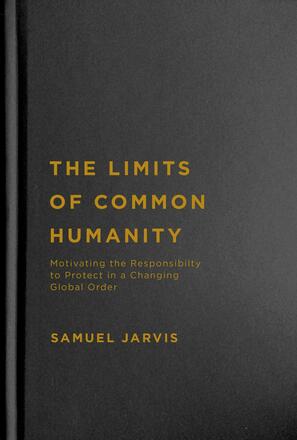
The Limits of Common Humanity
Motivating the Responsibility to Protect in a Changing Global Order
A critical exploration of the concept of common humanity and how it shapes responses to mass atrocities.
Description
What motivates states to protect populations threatened by mass atrocities beyond their own borders? Most often, states and their representatives appeal to the principle of common humanity, acknowledging a conscience-shocking quality that demands a moral response. But though the idea of a common humanity is powerful, the question remains: to what extent is it effective in motivating action?
The Limits of Common Humanity provides an ambitious interdisciplinary response to this question, theorizing the role of humanity as a motivational concept by building on insights from international relations, political philosophy, and international law. Through this analysis, Samuel Jarvis examines the influence the concept of humanity has had on the creation and mission of the Responsibility to Protect (R2P) commitment, while highlighting the challenges that have restricted its application in practice. By providing a new framework for thinking about how political, legal, and moral arguments interact during the process of collective decision-making, Jarvis explores the contradictory ways in which states approach the protection of human beings from mass atrocity crimes, both domestically and internationally.
In the context of a rapidly changing global order, The Limits of Common Humanity is a timely reappraisal of the R2P concept and its future application, arguing for a more politically motivated response to human protection that moves beyond an appeal for morality.
Reviews
“This book uniquely unpacks, centres, and conceptualizes the nebulous idea of ‘humanity’ within the rationale underpinning the Responsibility to Protect concept. By situating humanity as encapsulating a dual function – humankind and humanness – The Limits of Common Humanity fills a critical gap in the literature with its theoretical focus.” Ben Murphy, University of Liverpool